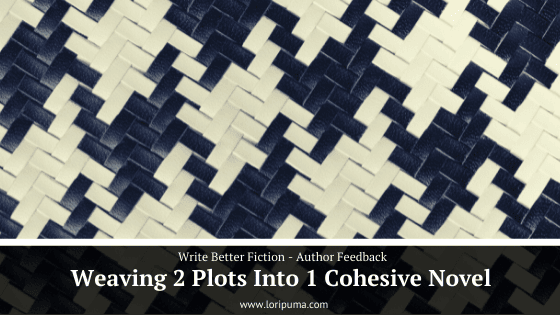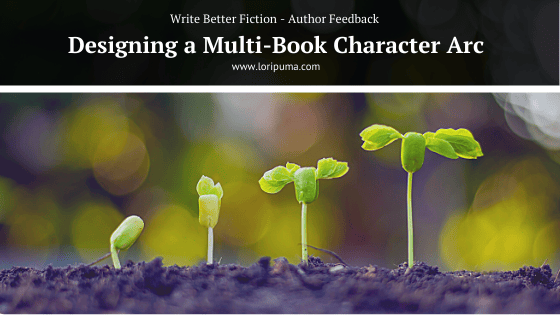Write Better Fiction: Crafting Romantic Heroes
/Hello, writers. This is a new style of blog post. In Write Better Fiction (WBF) posts, I give editorial feedback to an author on the big picture aspects of their fiction such as their premise, plot, narrative arc, main conflict, and character development.
Today’s feedback story
The first lucky author to get feedback is Sudha. She’s writing a novella-length romance that is the second in a series of reunion love stories. Sudha would specifically like feedback on: “how to create the right conflict for this story.”
Here’s how Sudha described the premise:
Two old friends who used to be lovers until graduation break up when one of them leaves for the US. Meeting at the high school reunion 10 years later rekindles the spark, but it doesn't seem possible to reunite.
And here’s what she said about the two romantic heroes:
He broke up with her when he moved to the US for his masters degree. He has switched careers and now runs an Indian restaurant in Arizona. They reconnect at the reunion but both can't give up their careers and move countries to be with the other.
She has a career now and doesn't want to give it up for her ex lover who she meets at the reunion because he lives and works in the US while she's moving ahead in her career in India.
What’s really great about what Sudha shared is that she’s already got a solid premise for a romance. She’s clear that the romantic conflict has a lot to do with the careers of the heroes. Before we get into the specifics of refining the romantic conflict in Sudha’s story, let’s talk about what makes a good romantic conflict in general.
What makes a good romantic conflict?
Romance is all about characters becoming their best selves. Each romantic hero starts out missing something in their life. As the relationship progresses throughout the book, one or both of the heroes is inspired to change in ways that allow them to fill in that missing piece.
Another aspect of a good romantic conflict, is that it prevents the couple from making a lasting commitment to each other until the end of the book. They face obstacles within themselves and in their lives that encourage them to hold something back, despite the strong attraction to the other character.
The obstacles these characters face also need to be multi-faceted. We don’t want to see the characters have the same argument over and over again in every scene. Since this is a reunion story, we want at least one of the obstacles to a long-term commitment to be tied to the characters’ shared past.
We also want the size of the obstacles to feel appropriate to the length of the book. Otherwise, the happily ever after at the end will feel unrealistic. In a novella, an author has ~25k-35k words, or ~16-24 scenes to write. We want to see a variety of scenes that help the heroes overcome their internal hesitations as well as any external obstacles.
Will readers swoon over your romance novel? Take this quiz to see how much progress you’ve made in creating a once-in-a-lifetime love story for your characters–and figure out what comes next.
Where might the romantic conflict start in this story?
It’s easier to see what makes a good romantic conflict if we use an example. Let’s walk through an example that shows what each character is missing at the start of the story and gives more clues to the obstacles each hero will face in the book.
Note: Sudha didn’t give names for her characters. For clarity, I’m going to pick names. I’ll call the female hero Deepti and the male hero Rajeev.
Deepti is a pioneer of a new intervention that’s helping millions of Indian women earn more money and fight sexism in the workplace. In fact, it’s so successful that a big Seattle-based philanthropic organization would love to hire her to run their worldwide program for women in the workforce. Deepti is reluctant to accept the offer. She doesn’t want to leave behind the women she’s helped in India or her close knit family for opportunities in the US. Especially not when she’s about to see the man who severely broke her heart the last time she took a big risk.
Rajeev loved the challenge of starting a new restaurant in a new country. He thrived on the adventure of it. Especially since his father was convinced he’d fail. But now that the restaurant is successful and stable, and he’s proved his father wrong, Rajeev is ready to move on. He’s looking around for a new project to help him recapture that excitement. He doesn’t need a relationship to complicate that search. It’s just so much easier to take risks when you’re solo. Rajeev’s adventuresome approach to life already cost him the love of his life once….
In summary, Deepti is scared to take practical risks because of the impact of her break-up with Rajeev many years ago. And Rajeev doesn’t want to be in a relationship because of what he learned from that long-ago breakup. What’s key here is that the characters’ shared backstory is an obstacle that’s influencing each character’s present life. Even if they don’t end up together, they’re both living smaller lives than they should because of their breakup. This novella is a chance for them to repair those wounds and become the best version of themselves.
How close are you to crafting a novel readers won’t be able to put down? Take a quiz to see what’s working and what comes next.
How the romantic conflict might be resolved in this story
How do we get Deepti and Rajeev together in a way that feels believable and satisfying to readers? Sudha was very clear that her heroes were both career-minded. To develop a great romantic conflict for this story, we need to dig deeper on what those careers mean to each character.
In the example I made up, Deepti values the personal connections and the positive impact she makes on women’s lives. Rajeev loves the challenge and excitement of running a business. When you get to the level of knowing what your characters value, you make room for creative solutions that can lead to a happily ever after (HEA).
Here are two possible ways Deepti and Rajeev could get an HEA from this example
Deepti moves to the US. Rajeev persuades Deepti she’s not going to fail so she takes the Seattle-based job, Rajeev gets to start a new restaurant in the Seattle—a new challenge for him. Deepti’s favorite niece also gets a job in Seattle (probably with Rajeev’s help) so Deepti will have at least one close family member nearby.
Rajeev moves to India. Deepti helps Rajeev reconnect with his father. Turns out a cousin has a struggling car repair business and Dad wants Rajeev to use his entrepreneurial know-how to help. Also, it turns out one of the regulars to Rajeev’s restaurant is an Indian-born philanthropist who wants to fund projects based in Asia. He can help Deepti expand the reach of her intervention to other South Asian countries, while letting her maintain her home in India.
In these possible HEAs, you can see that not only do Deepti and Rajeev get together, but their lives change in ways that show that they’ve grown from the beginning of the story.
Next steps for Sudha
There are an infinite number of possibilities for the romantic conflicts in this story. What the best conflicts will share in common is that they’ll create a narrative arc that shows both heroes starting out haunted by the impact of their breakup. Then, throughout the novella, they’ll be repairing the damage of all those years ago to become the best versions of themselves. A version that allows them to take risks in their careers, personal lives, and in committing to each other.
Here’s a list of questions I used to come up with the example I gave in this blog post.
Why does Deepti stay in India?
What does her career mean to her? Is it a sense of accomplishment? Purpose? Contribution? Something else?
Does she have career opportunities in India that wouldn’t be as available in the US? Or vice versa? Does she have opportunities in the US that aren’t available in India? Does she have a promotion or a job offer that’s been offered but not accepted yet?
Are there cultural elements she's afraid she'd miss if she left the country? What does she do in her free-time? Is she involved in local politics or advocacy? Does she have hobbies? Are they hobbies that are more available in India?
Are the things that scare her about the US?
Does she have family obligations– is she the primary caregiver for an aging relative or a disabled one?
Or maybe it’s not so much obligation but valuing the time she spends with her family. Is she close to a niece and nephew or a grandparent or belong to a family that throws parties all the time and she doesn’t want to miss out on being with the people she loves?
Why is Rajeev in the US? /What makes him reluctant to return to India?
What does Rajeev’s restaurant mean to him? Does it give him a sense of independence? Does he just love cooking food? Does he value being a community gathering location?
When it comes to his career as a restaurateur is he more attached to his specific restaurant or is about being in the food business or is it about succeeding in a new environment at a new challenge? Or something else?
What’s the story with Rajeev’s family? Have multiple members of his family immigrated to the US and he wants to be with them now? Did he have a big argument with his family-based in India and the US is an escape? Or maybe it’s something in between?
Why did Deepti and Rajeev break up befor and how is it haunting them in the present?
Did Rajeev say bad things about Deepti’s need for family?
Did Rajeev want her to go with him?
Did Deepti offer to go with to the US and Rajeev rejected her?
What lessons did they each take away from the break-up and how are those lessons making them suffer in their present lives?
Basically, the goal with the questions is to discover what’s really important to each of these characters. We want it to be something that on the surface looks like a conflict that will keep the characters apart forever, but when you dig deeper into what the characters really value you can see that they were meant to be together! They value the same things.
Enjoy this post? Join my email list so you’ll know when I publish the next author feedback post.
Or maybe you’ve got a fantasy, sci-fi, romance, mystery, or thriller for adult or young adult readers that you want feedback on? Submit your story.









